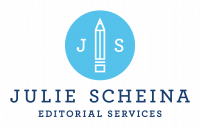If you’re on social media, you may already be familiar with Dr. Becky Kennedy, a clinical psychologist known for her engaging posts about common parenting struggles. After the publication of Dr. Becky’s book, Good Inside, I read an interview she did with reporter Elizabeth Holmes, and was struck by one piece of advice in particular.
While talking about how reframing our questions can help when we feel stuck on a problem, Dr. Becky said, “The thing that gets us unstuck is trying to generate a different framework—not thinking about a solution. The answer is to ask yourself a different question, to upgrade your question to a question that’s useful.”
While Dr. Becky uses this tool in a parenting context, I think this is also a helpful approach for creative goals. Earlier this year, I wrote about approaching goals with curiosity rather than judgment. However, sometimes in order to move forward, our goals themselves need to be shifted to ones that will better serve us. If you are feeling stuck or frustrated by your creative goals, try upgrading them with the below questions.
#1 Is my goal fully within my control?
One way of upgrading your creative goals is to ensure that your goals are actually ones that you can control and thus accomplish. Many things in publishing are outside the control of any one individual; an author cannot control a literary agent’s response to their manuscript, just as a literary agent cannot control an editor’s response and an editor cannot control a reader’s response. (Anyone who’s ever tried to share a favorite book with a child has undoubtedly already experienced the last situation firsthand!)
So instead of setting a goal like, “I will receive an offer of representation from X literary agent,” or “I will find an agent within X months of querying,” try upgrading your goal to something like:
- I will research 20 potential literary agents.
- I will ask two people I trust to read and provide feedback on my query letter.
- I will identify and read five new releases in my chosen category.
- I will submit 10 queries.
- I will brainstorm a new project while I begin querying.
While these goals will ultimately increase your chances of finding a literary agent—whether with this manuscript or a future one—they also focus on actions that are fully within your control in the present.
#2 Is my goal specific and short-term?
Another way to upgrade your goals is to break them into smaller, specific steps. Rather than setting your sights on a large goal that requires months or years of dedicated effort—like, “I will write a novel”—try to break the journey into short-term, incremental steps. Maybe that’s setting a goal like:
- This month, I will read a book about plot and structure and complete the included exercises.
- This week, I will complete two character worksheets to flesh out my protagonist and antagonist.
- This month, I will condense my picture book manuscript from 1200 words to 750 words.
- This week, I will write 500 words in my main character’s voice.
- This month, I will outline two opening chapters.
- This week, I will revise Chapter 12’s dialogue to ensure that each character reads distinctively.
Just as no one who decides to climb Mount Everest or run a marathon today can achieve their goal tomorrow, remember that writing is made up of small steps forward, week by week and month by month—or as Anne Lamott puts it, Bird by Bird.
#3 Is my goal harder than it needs to be?
Lastly, try upgrading your goals by focusing on the easiest and most enjoyable steps first. To return to last week’s example of learning to ride a bike, we’d never tell kids that they should start by riding up a mountain, simply because it’s harder. Yet when it comes to our own creative goals, it’s all too easy to assume that the harder something is, the more worthwhile it must be.
When you’re starting a new project or revisiting your goals, consider:
- What part of the writing process do I enjoy the most?
- What excites me about my new book idea?
- What part of my story am I most looking forward to writing or revising?
- What aspects of the writing community energize and inspire me?
Remember that what comes easily—or seems to come easily—to one writer may be the most challenging part of the process for another. As such, try to frame your goals with the intention of utilizing your natural interests and strengths, rather than working against them.
If you love worldbuilding but hate outlining, your first goal might be, “Spend one month on worldbuilding,” rather than, “Outline my entire novel.” Beyond making the process more enjoyable, this approach will help you to build momentum and increase your confidence before tackling more challenging areas.
Your Editor Friend,
Julie
